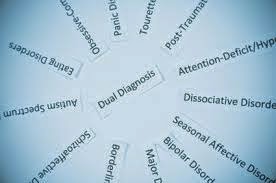Multiple Diagnoses in Kids on the Autism Spectrum

"We have been to many professionals over the years to get help for our son. It seems as though each therapist or psychiatrist we see comes up with a different diagnosis. First, our son had ADHD ...then he had OCD ...then it was ODD ...now it's autism (on the high functioning end of the spectrum). Who are we to trust? Can he really have all of these disorders? Help!" When parents seek help for their youngster with ASD level 1, or High-Functioning Autism (HFA), they encounter varied opinions from family, friends, teachers, and even professionals. For example: "he'll outgrow it" ... "leave him alone" ... "he's just being lazy" ... "he's just being defiant" ... "it's no big deal" ... "he just wants attention" ... "he's probably got ADHD" ...and so on. Many professionals try to work with the "special needs" youngster as if his disorder is like other developmental diso


